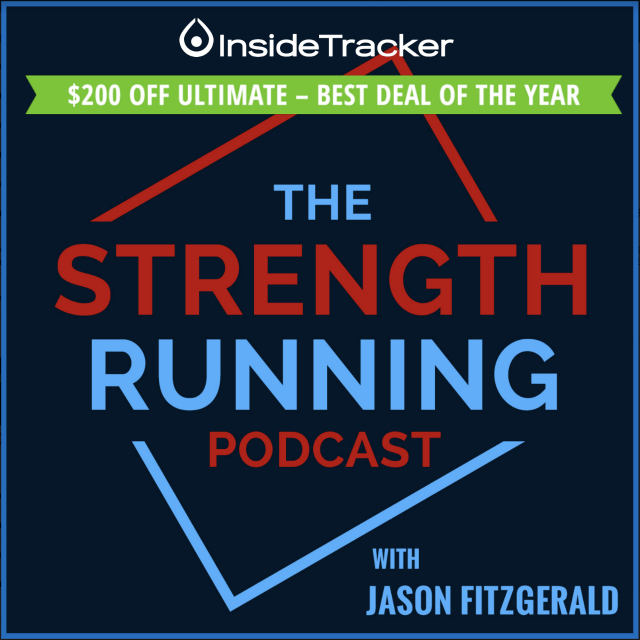I love looking through my old training logs from high school and college. They’re a goldmine of info:
I can see the progression of almost every important metric that runners care about:
- Finish times
- Weekly mileage
- Monthly mileage (more important than weekly mileage)
- Workout frequency, length, and intensity
- Frequency of strength work and cross-training
The patterns that you learn from reviewing years of training journals can give you some surprising insights.
Like…
What do I usually do in terms of training BEFORE an injury? (the answer to this question will help you prevent running injuries)
When do I have the most fun with my running? Can I replicate that more often?
What results in a massive PR?
Today, let’s focus on that last question.
Because if you can replicate the principles (not necessarily the exact workouts, mileage, etc.) that lead to personal bests then you can keep improving and setting personal bests.
The alternative is hitting a performance plateau. Stagnating. Running the same times over and over again…
And nobody wants that!
The Plateau-Busting Episode
After working with a lot of runners for the better part of a decade, I’ve come to understand that there are three areas that most contribute to declining performances:
The Weather
Yes, this is a boring one. But if you can’t seem to get any faster during the months of June, July, or August, then it might not be you – it’s the heat and humidity.
As one of my college teammates likes to say: “In the heat, I don’t compete!”
Lifestyle Issues
One of the many lessons I learned from my cross country coach at Connecticut College was to avoid burning the candle at both ends.
What exactly does that mean? Well, it means you shouldn’t stay up all night making questionable life decisions and then expect to rock a 17 mile long run the next morning.
Everything from sleep, stress, to diet can either support or tank your running (I cover this in more detail in the podcast).
Training Problems
This is arguably the most important: if your training doesn’t progress, neither will your performances.
The fix, therefore, is to take the “next logical step” with your running when it’s appropriate.
In the latest episode of the Strength Running podcast, I dive into each of these areas and help you make better decisions that will support your running.
Because after all, wiser training and lifestyle choices will always lead to more productive running.
Listen to the episode on iTunes or on the Stitcher platform if you have an Android device.
One of the most productive ways of breaking through a plateau is simply outsourcing the problem to a professional who understands it.
If you’re tired of not improving, learn more about our coaching programs or simply send me an email. I’m happy to help.
And if your performance plateau is due to a nutrition or hormonal problem, I have good news…
InsideTracker’s Annual Sale

Usually you can use code strengthrunning to save 10% on any testing service at InsideTracker – a company that gives you an unprecedented look at your body’s vitamin, mineral, fat, and hormone levels.
This was typically only available to pro runners but is now open for everyone. They test over 40 biomarkers in your blood and based on the results, give you custom nutrition and lifestyle recommendations.
In other words, they tell you what to buy at the grocery store (and what to skip), how to supplement intelligently so you’re not wasting your money on supplements that you don’t need, and how to change your training to avoid injury, burning out, or simply sub-par racing.
So if you’re training for a difficult race, want to ramp up your recovery, or are just a passionate running geek like me who’s always searching for more ways to improve, you’ll want to take advantage of this deal.
Better than 10% off, now you can save a whopping $200 on their Ultimate tier.
Save $200 off the Ultimate Package at InsideTracker with code THANKSSTRENGTHRUN at checkout. It’s not case sensitive but it does expire Monday, November 27th at midnight.